Alums Drive Event Providing Resources to K-12 Homeless Students
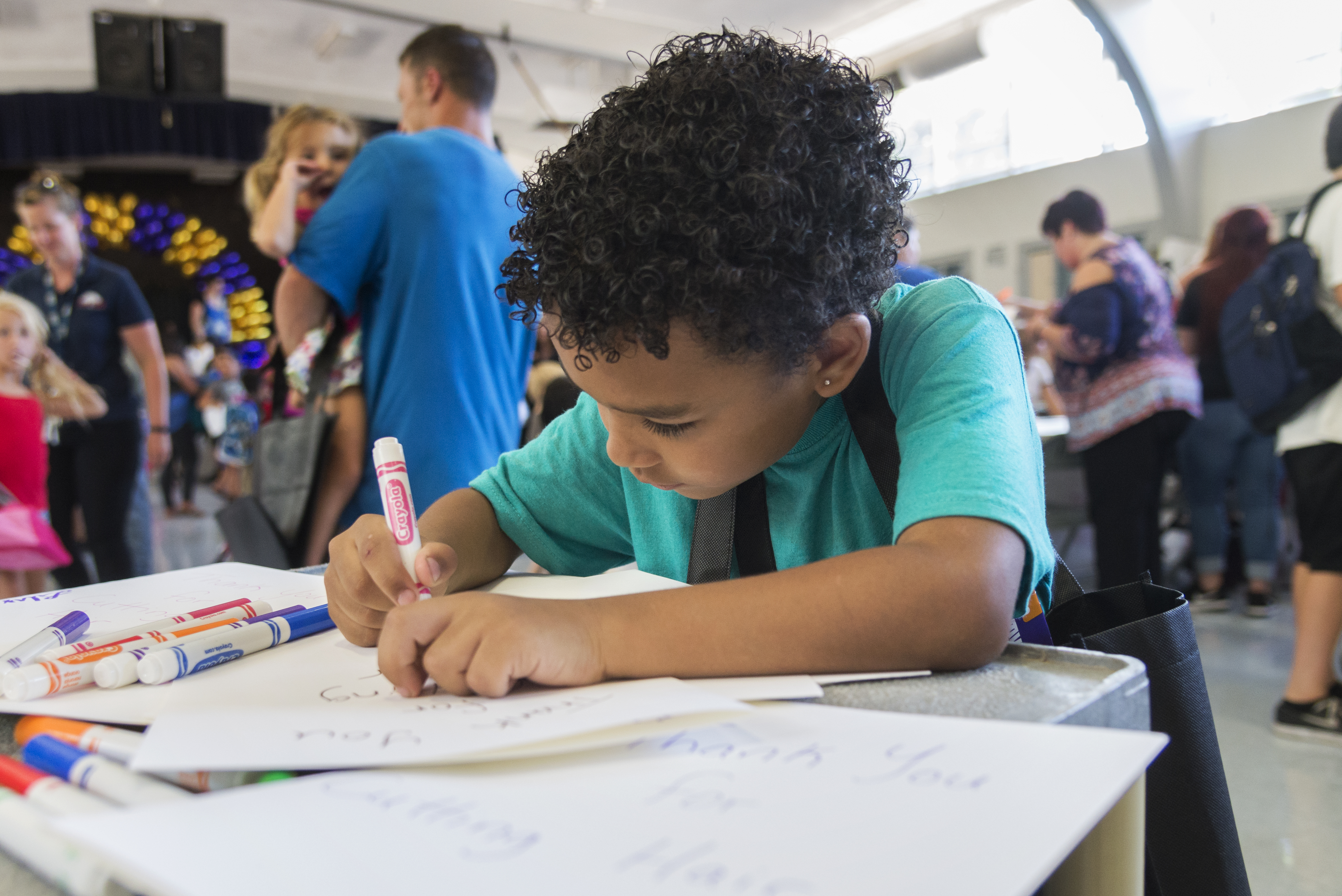
The coloring station at the Back-To-School Connect Event at Chico Junior High School added to the family-friendly atmosphere.
The home base for School Ties, a program of the Butte County Office of Education, is a small portable office in the Chico Seed Orchard. Hidden among giant redwoods, this office is where a professional staff of seven supports some of Butte County’s most underserved students.
It’s also where a dream began five years ago, to create a one-stop-shop for families experiencing homelessness and ensure their children had the the tools and confidence they needed to start the school year off right.
“Our most important job is to make sure that students are able to access their education and educational rights,” said Meagan Meloy (MA, Public Administration, ‘09), who has worked for School Ties since 2004.
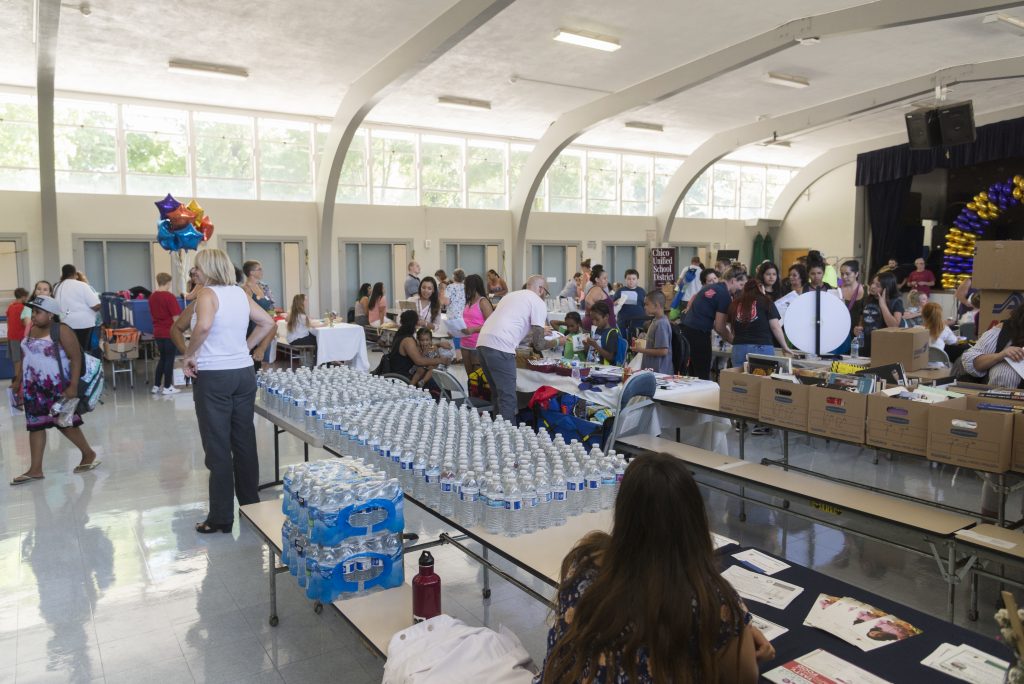
School Ties serves Butte County students from kindergarten through 12th grade who are homeless or in foster care. Offering case management, mentoring, transportation support, tutoring, and school supplies, School Ties serves about 500 homeless students and 600 foster care students every year. Social services work demands a lot of heart, which, lucky for everyone, the School Ties’ staff has plenty of.
Meloy started out as a case manager for homeless students and currently coordinates the growing program. Known for her energy and enthusiasm, she has mentored countless students over her tenure at School Ties and in the public administration and political science courses she teaches at Chico State.
I was fortunate enough to be mentored by her this past year. We met in her “Women and Politics” course in the fall 2016 semester. Both fueled by a passion for social services, we bonded quickly.
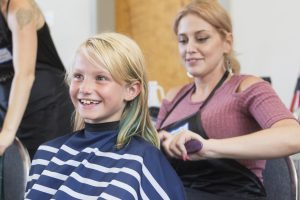
After the course ended, Meloy offered me an internship to coordinate the inaugural School Ties: Back-to-School Connect (B2SC), which I was thrilled to accept.
Since I first set foot on Chico State’s campus in 2013, I’ve centered my academic career on public service and social justice, interning at agencies that serve low-income families, sexual assault survivors, and underserved youth. Due to my interest in social services and experience in community organizing, coordinating B2SC was a perfect fit.
The BCOE’s inaugural B2SC was held on a warm evening earlier this month at the central location of Chico Junior High School. Though our team expected to serve about 150 K-12 students, over 250 students and their families lined up before the event started, illustrating the great need our rural area has for resources and services.
A fun and family-friendly festival atmosphere greeted the 250 students and their families. Arts and crafts, a DJ, free haircuts, a movie, and dinner from a local taco truck, complete with cotton candy and popcorn, lifted the event from a basic needs fair to a memorable community-building event.
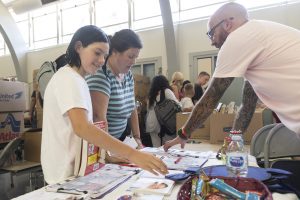
A dream of Meloy’s for about five years, B2SC is modeled after Project Homeless Connect, which began in San Francisco over 10 years ago. A Project Homeless Connect is a “one-stop shop,” providing many resources at one location for homeless individuals.
“This model is all about making services and support easily accessible to students and families,” said Meloy. “It’s both efficient and effective, with the added benefit of connecting families with their schools and the greater community.”
It was amazing to witness students smiling ear-to-ear as they rummaged through 800 donated books, chose several pieces of new and gently used clothing, picked up a new, colorful backpack full of school supplies, received a hygiene kit and a gift card for shoes, and enjoyed a fresh haircut by professional cosmetologists.
Several interactions at the event reinforced my passion for social services work. A young child sprinted over to hug and thank me for her new backpack and haircut. Parents sought me out to express gratitude for the free resources and services. At B2SC, we helped students meet their basic needs to be successful in school. This fulfilled one of my strongest career aspirations: helping people receive the resources they need to thrive.
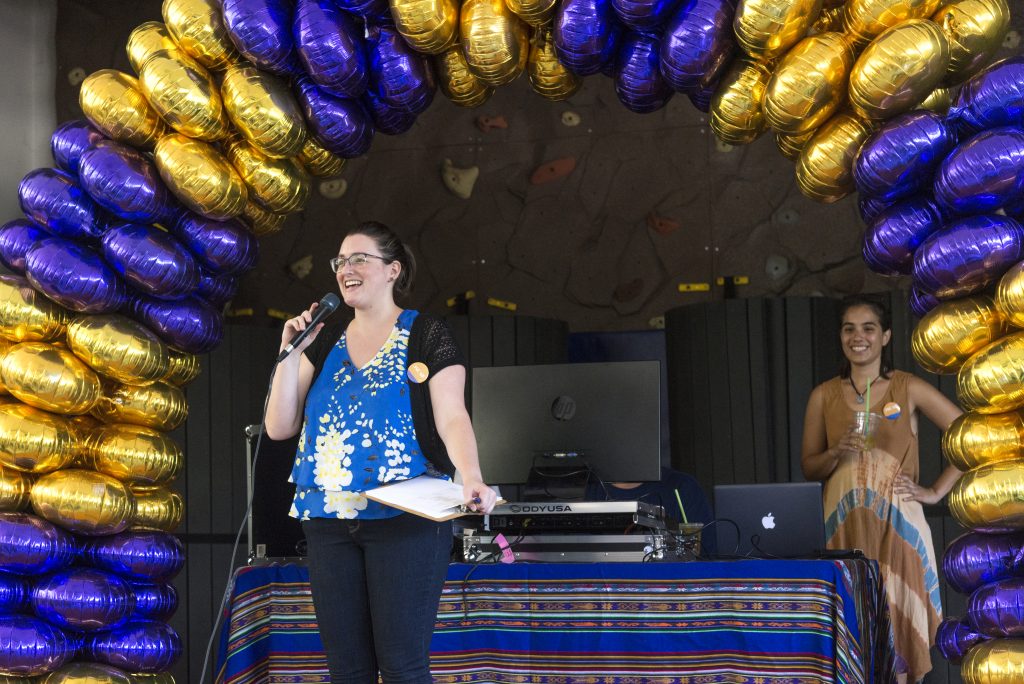
Over 20 local service providers who support homeless youth were also present at B2SC. Information and referrals were available in behavioral health, education, employment, legal assistance, and public health services. These connections assist families in building resiliency—one of the five protective factors from the strengthening families framework, which aids in child development and helps to prevent abuse and neglect. Meloy’s work at School Ties strongly reflects this research-informed approach.
B2SC was a collaborative, community effort led by a planning committee and supported by a $3,200 grant from the Child Abuse Prevention Council of Butte County and over $5,000 in donations.
Meloy’s five-year dream became a reality that warm evening in August, but she’s not stopping there. She plans to connect with local agencies in Oroville and Paradise to expand B2SC to neighboring towns in the North State.
As for me, this semester I start the Master of Public Administration program at Chico State. I’m focusing in health policy and aim to study public policies that affect the well-being of society and its most underserved communities, to help families just like those at B2SC.
—Jessica Candela (BA, Multicultural and Gender Studies, Political Science, ’17) was the 2017 Commencement speaker for the College of Behavioral and Social Sciences


